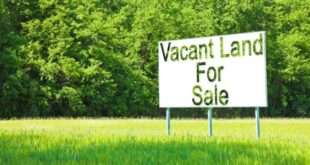New houses vs. old houses, which one should you buy? That’s one of the most popular questions that disturb the minds of first-time home buyers. If you plan to buy a house, you need to evaluate your needs because that’s what will help you make the right choice.The secret to buying a house lies in the unique benefits of the kind of house you need.
Whether you intend to purchase new homes or old homes, you should note that they both have unique pros and cons. The decision you make will also depend on your preferences.
Some people may get attracted to old houses due to their spacious nature, while others may get attracted to new homes because of their modernity. But if you don’t understand the type of house you want, you can visit ballymorehomes.com to get some help.
Buying New Houses vs. Old Houses
In this comprehensive guide, we explore all the advantages and disadvantages of buying new houses vs. old houses. The information you’ll read will help you make the right choice when purchasing a home. Keep reading to learn more.
Buying an Old House: Pros and Cons

It’s no doubt that old houses are sturdy despite looking mature and weathered. If you purchase an old house, you will realize that it has a unique design and features that many modern homes lack. That’s one of the reasons why some people prefer an old house.
In most cases, home buyers purchase old homes because they are always more spacious than many new houses. Besides, they have larger garden spaces, rendering them ideal for homeowners who love gardening.
Pros of Buying Old Houses
Besides being spacious, old homes also have many other advantages. Here are some of the things you’ll enjoy when you purchase an old house.
- Thicker Walls: Many old houses usually have walls that are thicker than those of new and modern homes. It’s because the stones and bricks that the builders used to build old houses were always thick. That made the houses stand firm for long.
- Established Neighborhoods: New homes tend to get constructed on the outskirts of a town. Thankfully, most old houses are usually available in central locations that are well-established. Their localities have many shops and restaurants.
Also, the neighbourhoods of old homes have established transport systems. It can take you a few minutes to move from home to your workplace. Also, you can even walk from home to work when the house is in a highly walkable area.
- Better Parking: When you buy an old house, you will rest assured that you’ll get an ample parking space. Today, many modern homes have limited parking space, and you will be even lucky to find a home with only one parking space.
- Incredible Vegetation: Most old homes have well-grown trees with canopies that provide shade. Some homes have aged trees of up to 100 years old. Some of the vegetation that you can find in old homes are the rose bushes.
- Bigger Rooms: In the past, homeowners used to build houses with big rooms due to extensive land spaces. However, the case is different when it comes to the designs of new homes. Most of them have many but smaller rooms.
- Low Costs: The cost of an old home is relatively cheaper than that of a new home. According to Realtor, the median price of an old home is $ 240,500, while that of a new home is $ 335,400. You’ll save almost $ 100,000 when you buy an old house.
Cons of Buying an Old House

While old houses are spacious and thick-walled, they also have some drawbacks. They include:
- Worn-out Features: It’s no secret that old homes may have antique items. You may find leaking taps, damp environs, and paint-less walls.
- Renovations: When you move into an old house, you may have to do many repairs to make the house look great. Unfortunately, refurbishing and fixing the home’s old décor can be costly.
- Old Heating Systems: Most old homes have poor heating systems that dissipate a lot of heat, increasing the energy consumption in a home. During winters, rooms may also take longer durations to get warm.
Pros of Buying New Houses
Most new homes have modern features that can fulfil the interests of a modern individual. Here are the advantages of new homes.
- Energy Efficient: Modern houses have well-insulated floors, ceilings, and walls, helping homeowners save energy on heating the house. Also, some new homes have solar panels to save on electricity.
- Easy to Personalize: When constructing a new home, you have the chance to personalize it to fulfil your interests, right from the flooring material, color of wall paints, to the type of interior design.
- Low Maintenance Cost: You don’t need much money to maintain a new home built using long-lasting materials. The roofing or water-heating system of a modern house can take up to 20 years before replacement.
Cons of Buying a New House
Like any other property, new houses also have a few disadvantages, and they include:
- Longer Commuting Distances: You can quickly find a new house on the outskirts of a city. If you work in downtown, moving from home to your workplace may take many minutes.
- Sparse Vegetation: Most new homes have young and immature trees. Homeowners have to wait for the trees to grow. Unfortunately, some homes may not even have spaces for growing vegetation.
- Thin Walls: Unlike old homes, most new houses have lighter and thinner walls with plasterboard finishing. That’s why old houses last longer than new houses.
Final Words
Now that you understand the pros and cons of new build homes vs. old build homes, you need to evaluate your needs and budget before selecting an option. Make sure that you understand what you are paying for and negotiate for better prices if possible. It’s a great idea to compare the benefits of new houses vs. old houses to purchase the best home.



